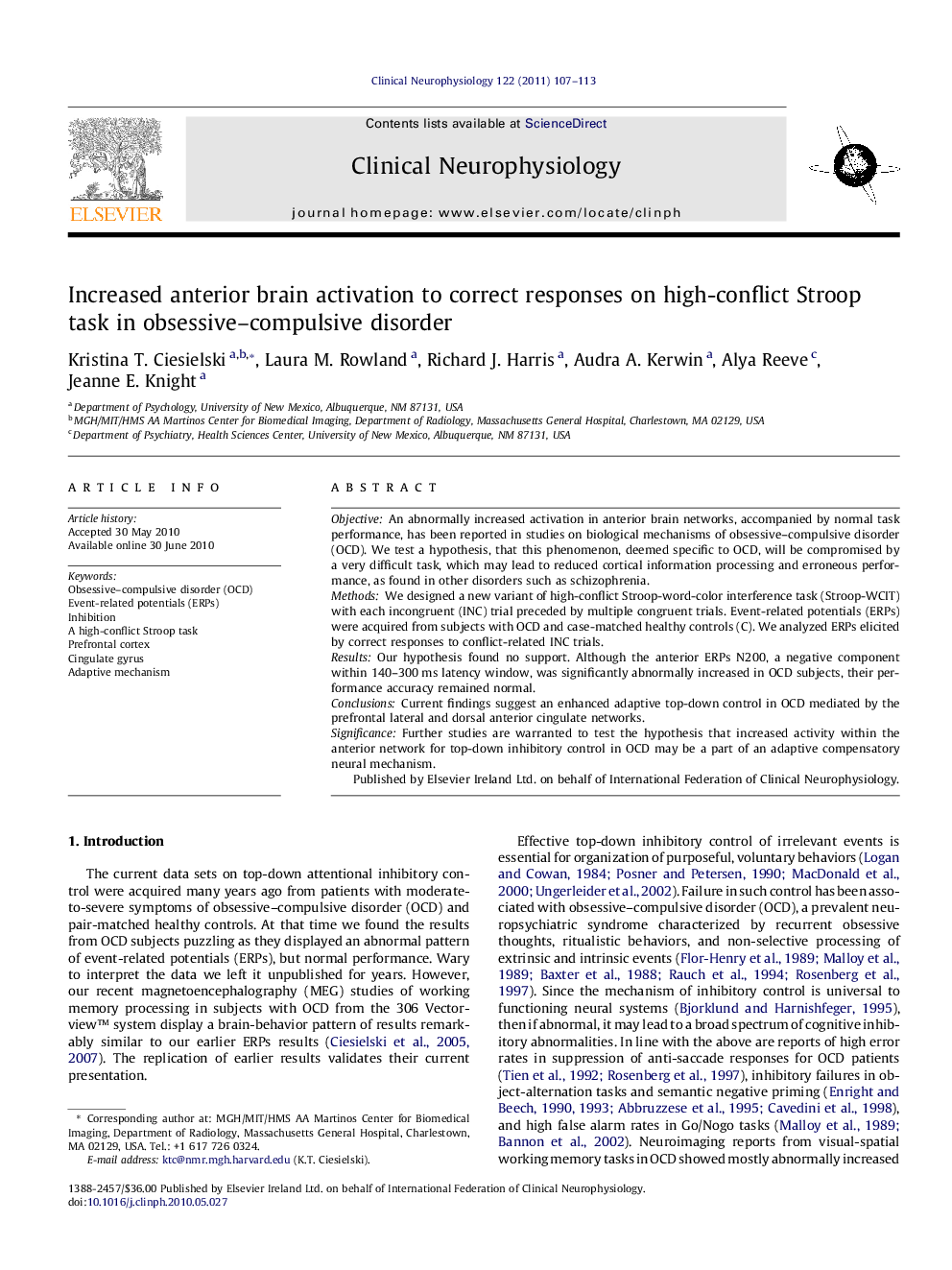| Article ID | Journal | Published Year | Pages | File Type |
|---|---|---|---|---|
| 3044250 | Clinical Neurophysiology | 2011 | 7 Pages |
ObjectiveAn abnormally increased activation in anterior brain networks, accompanied by normal task performance, has been reported in studies on biological mechanisms of obsessive–compulsive disorder (OCD). We test a hypothesis, that this phenomenon, deemed specific to OCD, will be compromised by a very difficult task, which may lead to reduced cortical information processing and erroneous performance, as found in other disorders such as schizophrenia.MethodsWe designed a new variant of high-conflict Stroop-word-color interference task (Stroop-WCIT) with each incongruent (INC) trial preceded by multiple congruent trials. Event-related potentials (ERPs) were acquired from subjects with OCD and case-matched healthy controls (C). We analyzed ERPs elicited by correct responses to conflict-related INC trials.ResultsOur hypothesis found no support. Although the anterior ERPs N200, a negative component within 140–300 ms latency window, was significantly abnormally increased in OCD subjects, their performance accuracy remained normal.ConclusionsCurrent findings suggest an enhanced adaptive top-down control in OCD mediated by the prefrontal lateral and dorsal anterior cingulate networks.SignificanceFurther studies are warranted to test the hypothesis that increased activity within the anterior network for top-down inhibitory control in OCD may be a part of an adaptive compensatory neural mechanism.
